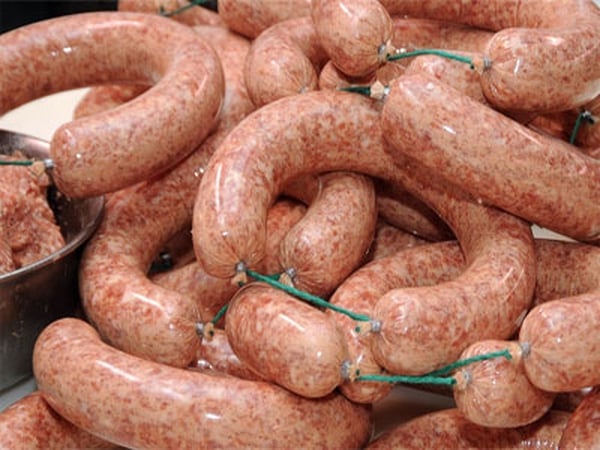Almost 1,400 people have been laid off in the pig processing industry following the pork recall.
The lay-offs known so far are: Rosderra Meats, 850 laid off at the company's Edenderry, Clara, Roscrea and Jamestown (Laois) plants, McCarren Meats, Cavan, 140 laid off, Feldhues Ltd, Clones, Co Monaghan, 50 laid off, Callan Bacon, Co Kilkenny, 79 laid off, and in Queally Pigs, Co Waterford, 30 workers were given a day's holiday today and no date for a return to work.
Click here for our comprehensive guide on the recall
The slaughtering of pigs did not resume as expected this morning because processors say they cannot go back to work until the Government promises them financial help.
They say they need help to deal with the recall of pigmeat because of dioxin contamination.
SIPTU says up to 6,000 jobs are at risk.
Rosderra Meats in Co Offaly, a meat processor with four sites, said it had no alternative to laying off workers.
The Taoiseach has said the Government may apply to the European Union to fund, or partly fund, a compensation scheme for the pork industry.
Detailed discussions have been underway with industry representatives to agree a scheme that will be submitted to the EU.
Mr Cowen said the government's priority is to resume processing of Irish pork products.
When asked about the issue of compensation Mr Cowen said that it is the Government's intention to assist the industry in whatever way it can to make a recovery from what is a very difficult situation.
When asked about the announcement by Rosderra, Mr Cowen said he would have to discuss specific issues with the industry, and he said difficulties are anticipated.
'Innappropriate' oil used in Co Carlow plant
A senior official at the Dept of Agriculture has said that inappropriate oil was being used in the Co Carlow food recyling plant at the centre of the Pork Diaxon contamination.
Senior Inspector Dermot Ryan said the oil being used was not appropriate to the type of operation at the plant and the operator did not have a licence from the EPA as required.
Mr Ryan said the EPA are currently on site conductiing an investigation.
He also the said the oil had not been mixed into the food but was being used to heat food which was being converted into animal feed.
Mr Ryan said the legal requirement regarding the type of oil a company uses falls within the remit of the EPA.
Minister for Agriculture Brendan Smith told the press conference that he is in touch with the European Commissioners for Health and Agriculture about the situation.
He also said Irish Embassies abroad will be used to across the message of safety of Irish pork in the future.
International impact
The European Commission said today that 12 EU countries and nine non-EU countries have been affected by the contamination scare.
EU countries affected are Italy, Germany, the Netherlands, Poland, Sweden, Denmark, Belgium, Estonia, the UK, France, Portugal and Cyprus.
The other markets that have been impacted are Japan, Russia, Singapore, the US, Canada, Switzerland, China, Hong Kong and Korea.
EU Commissioner for Health Androulla Vassiliou has said that the 12 member states which have imported Irish pork and pork meat products are required to detain the products in order to check them for the presence of dioxins.
She added, however, that there was no need to take further action at the moment regarding the Irish dioxin scare.
This afternoon the European Food Safety Authority was to hold a video conference meeting with the affected member states.
On Wednesday there will be a meeting of chief veterinary officers, and a meeting of the EU's standing committee on the food chain and animal health on Friday.
The Commission says it wants to share information and harmonise enforcement in order to ensure a high level of human health protection.
Domestic impact
Ireland's pig industry is worth €400m per year, with exports accounting for about €250m.
Minister for Agriculture, Fisheries and Food Brendan Smith is holding talks with pigmeat processors today about getting Irish pork back on sale following the scare.
The processors have warned that they will not resume slaughtering of pigs until they get financial help from the Government towards the cost of the product recall.
Meanwhile, Bord Bia is preparing a campaign in a bid to restore consumer confidence in Irish pigmeat at home and abroad.
Speaking on Morning Ireland, its Chief Executive, Aidan Cotter, said it wants to restore confidence in Irish pigmeat at home and abroad.
When processing resumes, Irish pigmeat will carry a new label saying it was produced after 7 December, and therefore unaffected by the current product recall.
Gardaí have been asked to investigate how pigs in the country came to be contaminated with the potentially harmful dioxins.
The company at the centre of the pigfeed contamination, Millstream Power Recycling Limited which is located just outside Fenagh, Co Carlow, has denied that an industrial oil had been used in the animal feed.
A spokesman said oil is used to power machinery that processes the feed, but he added that he did not know yet if this could be the source of the contamination.

